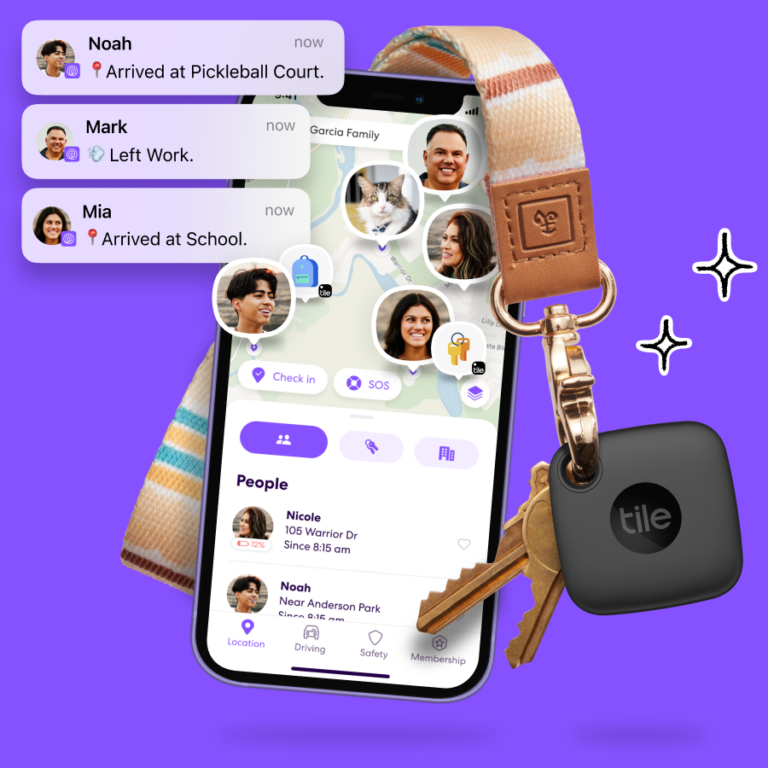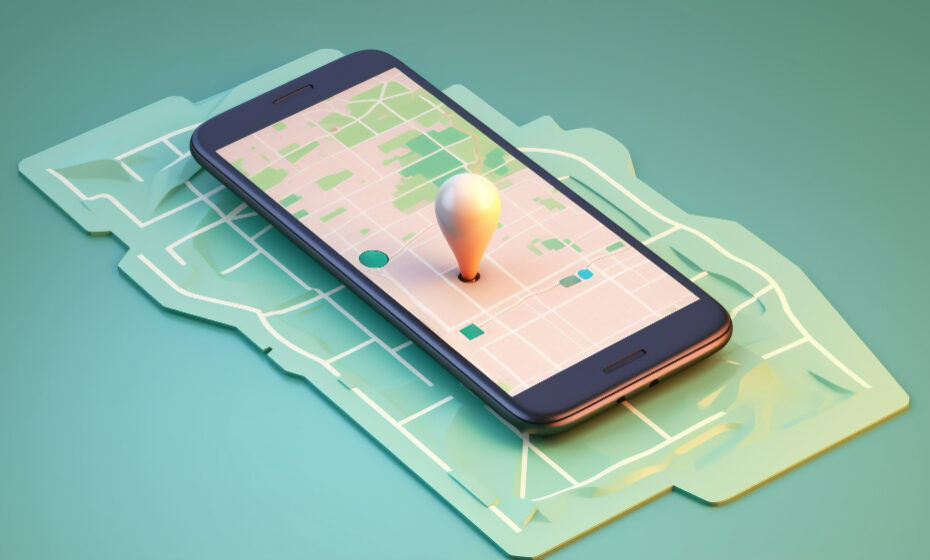Tracking someone’s location using their phone number is a topic of significant interest, both for legitimate reasons such as parental control and for more dubious purposes. From a software development perspective, building an application to track someone’s location using their phone number involves several technical, ethical, and legal considerations. This article explores the methods, tools, and best practices for developing such an application.
1. Understanding the Basics
To track a location using a phone number, you generally need access to GPS data, cell tower triangulation, or Wi-Fi network information. Here are the primary methods:
- GPS Tracking: Most modern smartphones come with built-in GPS, which provides accurate location data. However, accessing this data requires the device owner’s consent.
- Cell Tower Triangulation: This method uses the phone’s connection to nearby cell towers to estimate its location. It’s less accurate than GPS but can work in areas where GPS signals are weak.
- Wi-Fi Positioning System (WPS): This method uses the known locations of Wi-Fi hotspots to triangulate the phone’s position. It can be very accurate in urban areas with many Wi-Fi networks.
2. Technical Implementation
A. API Integration: To build a location tracking application, you need to integrate with APIs that provide location data. Some popular APIs include:
- Google Maps Geolocation API: Provides location data based on cell towers, Wi-Fi networks, and GPS.
- Apple’s Core Location Framework: Used for iOS applications to access the device’s location.
- HERE Location Services: Offers comprehensive location data services, including geocoding and reverse geocoding.
B. Backend Development: A robust backend is essential for handling requests, processing location data, and storing historical data. Consider using frameworks like Node.js, Django, or Ruby on Rails to build your backend. Ensure secure communication between the client and server using HTTPS.
C. Frontend Development: Your application’s frontend should provide a user-friendly interface for tracking and displaying location data. Use JavaScript frameworks like React, Angular, or Vue.js for building interactive UIs. Maps can be integrated using libraries like Leaflet or the Google Maps JavaScript API.
D. Database Management: Store location data securely using databases such as PostgreSQL, MySQL, or NoSQL options like MongoDB. Implement encryption for sensitive data to enhance security.
3. Ethical and Legal Considerations
A. User Consent: Always obtain explicit consent from the device owner before tracking their location. Implement clear privacy policies and ensure users understand what data is being collected and how it will be used.
B. Legal Compliance: Different countries have varying laws regarding location tracking. Ensure your application complies with local regulations, such as the General Data Protection Regulation (GDPR) in Europe or the California Consumer Privacy Act (CCPA) in the United States.
C. Security Measures: Protect location data from unauthorized access using encryption, secure authentication methods, and regular security audits. Implement role-based access control (RBAC) to limit access to sensitive data within your organization.
4. Challenges and Best Practices
A. Accuracy: GPS provides the most accurate location data, but it can be affected by environmental factors. Combine multiple sources (GPS, cell towers, Wi-Fi) to improve accuracy.
B. Battery Consumption: Continuous location tracking can drain the device’s battery. Optimize your application to balance between accuracy and battery consumption by using location updates only when necessary.
C. Data Privacy: Minimize data collection to only what is necessary for your application to function. Regularly review and update your privacy policies and data handling practices.
D. User Experience: Ensure your application provides real-time updates and intuitive maps for a better user experience. Offer features like geofencing, which sends alerts when a device enters or leaves a specified area.
5. Case Study: Developing a Parental Control App
Consider a parental control app as a practical example of location tracking. Such an app would allow parents to monitor their children’s whereabouts to ensure their safety.
A. Features:
- Real-time location tracking
- Geofencing alerts
- Location history
- SOS alerts
B. Implementation Steps:
- API Integration: Use Google Maps Geolocation API for location data.
- Backend Development: Set up a secure server using Node.js to handle data requests and store location history.
- Frontend Development: Build a mobile-friendly UI with React Native, integrating maps and real-time updates.
- User Consent: Implement clear consent forms and privacy policies for parents and children.
- Testing and Deployment: Thoroughly test the application for accuracy, performance, and security before deploying it to app stores.
5 Top Apps to Track Someone’s Location With Phone Number

Life360 is a comprehensive family location sharing app that provides real-time location tracking, location history, and alerts for arrival and departure from specified places. It’s designed to help families stay connected and safe. The app includes features like driving reports, roadside assistance, and crash detection in its premium plans. The intuitive interface allows users to set up private groups called Circles, where they can share locations and communicate securely.
Key Features:
- Real-time location tracking.
- Location history.
- Driving safety reports.
- Crash detection with premium plans.
- Geofencing alerts for specified locations.
- In-app messaging for communication within Circles.
Pricing: Life360 offers a free version with basic features. The premium plans include:
- Silver: $4.99/month or $49.99/year – Includes driving safety and location history for 30 days.
- Gold: $9.99/month or $99.99/year – Adds roadside assistance, theft protection, and other advanced features.
- Platinum: $19.99/month or $199.99/year – Includes all Gold features plus family safety assistance and more comprehensive crash detection services.
Glympse is a simple yet powerful location sharing app that allows users to share their real-time location with anyone without requiring them to sign up. The app is ideal for coordinating with friends, family, or colleagues by sending a Glympse of your current location via SMS, email, or social media. It supports geofencing and provides a map view for easy visualization of the locations of all participants.
Key Features:
- Real-time location sharing.
- No sign-up required for recipients.
- Geofencing capabilities.
- Cross-platform support.
- Temporary location sharing.
Pricing: Glympse is a free app with no premium plans, making it accessible for anyone who needs to share their location temporarily.

Cocospy is a robust phone tracking app that offers accurate GPS tracking and detailed location history. It is designed to work in stealth mode, ensuring that the target user is unaware of the tracking. Cocospy does not require rooting or jailbreaking the target device, making it secure and easy to use. It is ideal for parents to monitor their children or employers to keep track of their field employees.
Key Features:
- Real-time GPS tracking.
- Location history reports.
- Operates in stealth mode.
- No rooting or jailbreaking required.
- Additional features like call tracking and SMS monitoring.
Pricing: Cocospy offers various subscription plans:
- Basic: $39.99/month for basic monitoring features.
- Premium: $49.99/month with more advanced features.
- Family Plan: $69.99/month for monitoring up to 3 devices.
eyeZy is a cutting-edge tracking app that utilizes artificial intelligence to provide accurate real-time location tracking and detailed reports. It allows users to monitor the target device’s location and view location history. The app is user-friendly and offers advanced features to ensure comprehensive tracking and monitoring.
Key Features:
- Real-time GPS tracking.
- AI-powered tracking reports.
- Location history.
- Easy setup and user-friendly interface.
Pricing: eyeZy offers different subscription plans:
- Monthly Plan: $49.99/month.
- Quarterly Plan: $27.99/month, billed every 3 months.
- Yearly Plan: $9.99/month, billed annually.

Spynger is a comprehensive cell phone tracking application that provides a range of features including real-time GPS tracking, SMS and call tracking, and social media monitoring. It is designed for users who need detailed insights into the target phone’s activities and location.
Key Features:
- Real-time GPS tracking.
- SMS and call log monitoring.
- Social media activity tracking.
- Stealth mode operation.
Pricing: Spynger offers several subscription options:
- Basic Plan: $39.99/month.
- Premium Plan: $69.99/month with additional features.
- Family Plan: $99.99/month for monitoring multiple devices.
FAQ: Additional Considerations for Location Tracking Apps
1. Is it legal to track someone’s location with these apps?
Tracking someone’s location without their consent can be illegal and considered an invasion of privacy. These apps should be used ethically and legally, such as for parental control or employee monitoring with their knowledge and consent. Always check local laws and regulations before using these apps.
2. Do these apps work internationally?
Most of these apps can work internationally, but it depends on the app’s specific capabilities and the target device’s connectivity. Ensure the app you choose supports international tracking if you need to monitor someone in a different country.
3. How accurate is the location tracking?
Accuracy varies by app and the method of tracking used (GPS, cell tower triangulation, Wi-Fi positioning). Generally, GPS provides the highest accuracy, often within a few meters, while other methods may have a larger margin of error.
4. Can these apps be detected by the user of the target device?
Many tracking apps operate in stealth mode to avoid detection. However, sophisticated users may still be able to detect unusual battery usage or unfamiliar apps running in the background. Always inform and obtain consent from the person being tracked to avoid legal and ethical issues.
5. What happens if the target device is turned off or not connected to the internet?
If the target device is turned off or not connected to the internet, real-time tracking will not be possible. However, most apps will update the location information as soon as the device is turned back on and reconnects to the internet.
6. Are there any free apps for tracking locations?
While some apps offer free versions or trials (e.g., Glympse), many require a subscription for advanced features and continuous use. Free apps may have limitations in terms of features and accuracy compared to their paid counterparts.
7. Can these apps track other types of activities besides location?
Yes, many of these apps, like Spynger and Cocospy, offer additional features such as call and SMS tracking, social media monitoring, and browsing history. These comprehensive monitoring tools can provide a detailed overview of the target device’s activities.
8. How do these apps ensure data security and privacy?
Reputable tracking apps use encryption and secure servers to protect user data. It’s essential to choose apps with strong privacy policies and security measures to ensure that sensitive information is safeguarded.
9. What kind of customer support do these apps provide?
Customer support varies by app. Some offer 24/7 support, while others may have limited hours or only provide email support. Check the app’s customer support details before subscribing, especially if you anticipate needing assistance.
10. How easy is it to set up and use these apps?
Most of these apps are designed to be user-friendly with straightforward installation processes. Typically, you need to create an account, install the app on the target device, and follow the setup instructions. Some apps, like Glympse, require minimal setup, while others, like Spynger and Cocospy, may require more detailed configuration.
Conclusion
Tracking someone’s location using their phone number can be achieved using a variety of apps, each offering unique features and pricing plans. Apps like Life360 provide comprehensive family tracking solutions with real-time updates and additional safety features. Glympse offers straightforward, temporary location sharing without requiring sign-ups, ideal for short-term coordination. Cocospy and Spynger offer advanced tracking capabilities including stealth mode and activity monitoring, suitable for more detailed oversight. eyeZy leverages AI for precise location tracking and historical data, while Phonsee provides real-time tracking with simple installation. When choosing an app, consider the ethical and legal implications, ensuring consent from the person being tracked, and prioritize apps that guarantee data security and privacy.

